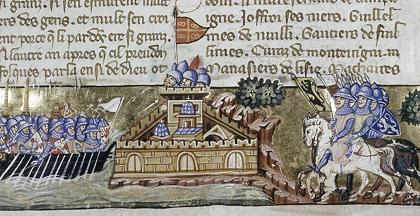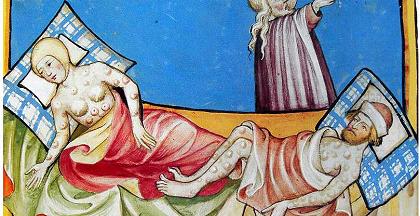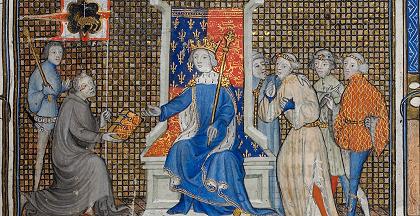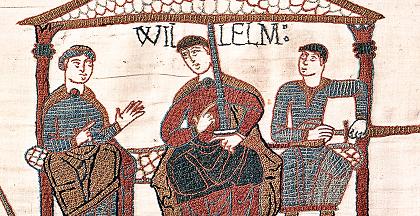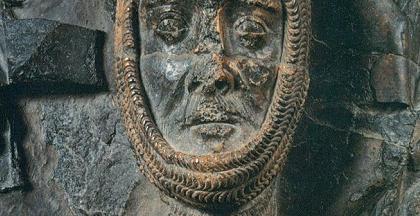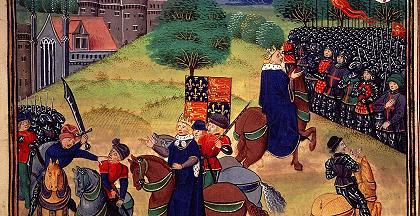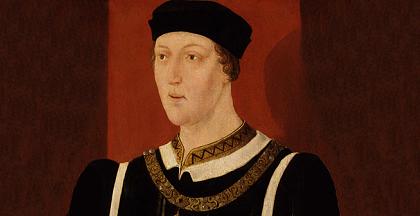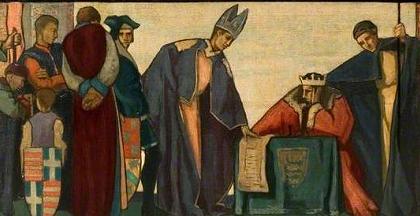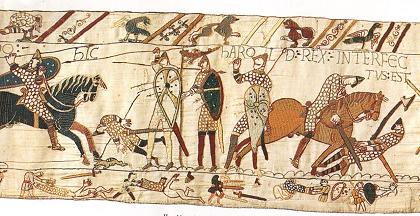High and Late Medieval History Articles
Characterized by a surge in Gothic architecture, cultural flourishing, and the establishment of strong monarchies, the High and Late Medieval period brought significant changes. As feudalism waned and towns grew, this era set the stage for the Renaissance.
Fiasco: The Mad Tale of the Fourth Crusade
For better or worse, the Crusades were among the more spectacular, far-reaching and important endeavours of the first two millennia of the Common Era. Typically they are seen as huge battles between the Christian West and the Muslim East, but as the Fourth Crusade shows, that wasn't always the case.
The Black Death: A Brief Introduction
The Black Death looms large in the modern imagination, as it did in the minds of late medieval people. It is a spectre, or shadow, reminding everyone of their mortality, and the briefness of life. The reactions it provoked showed the best, and worst, of the human condition, and its long-term effects contributed to sweeping changes in society.
Literature at the Court of Richard II
The last two decades of the fourteenth century stand out in English history, distinguished by cultural, social and political shifts that have echoed through the centuries. Yet perhaps the most widely-accepted and lauded change in this period came with the development of literary culture. The works of poets such as Geoffrey Chaucer mark a revolution in the history of English as an artistic language.
The Norman Conquest: Cataclysm or Continuity?
Without doubt, the Norman Conquest had an impact on England, but recently historians have stressed its continuity, questioning whether the invasion can be viewed as a cataclysm. After all, any incident claiming the description must have far-reaching consequences for the organisation of the country, its government, laws and institutions, and its economy.
William Marshal: The story of a remarkable man
William Marshal was the landless younger son of a middle-ranking nobleman, who raised himself through the tournament circuit and serving five crowned kings, to become the de facto regent of England. He was the original celebrity, inspiration for films such as A Knight's Tale, and by his death was considered 'the greatest knight' in the world.
The Peasants' Revolt of 1381
In May 1381, government demands to pay a poll tax started widespread rebellion in what became known as the Peasants' Revolt. Groups of people from Essex and Kent marched on London seeking social reform, inspiring others as they went. Leaders of the Revolt met with Richard II, who granted their demands, only to change his mind later.
Henry VI: the Weak King?
Henry VI has gone down in history as a weak and mentally unstable king, swayed too easily by his court favourites and his over-bearing wife. He is compared unfavourably with his father who had success in battle and in laying siege to towns.
Magna Carta
Magna Carta (meaning 'Great Charter') has gone into myth as the foundation of modern human and civil rights, and of our current systems of government and law. Many look to its legend to give themselves authority legally or politically, and the last 33 British monarchs have sworn to uphold it.
The Battle of Hastings
The Battle of Hastings is considered to be one of the most important battles of England's history. Often taken as the definitive point when England stopped being Anglo-Saxon and instead became Norman - with all the associated changes in government and culture - it was in fact long-lasting, hard-fought and visceral. And it was by no means a foregone conclusion.

